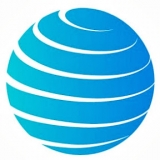The Lowitja Institute International Indigenous Health & Wellbeing Conference Opening
Jalangurru maningarri, ngarragi yani. Wadi jalangurru yathanggirragi.
I would like to acknowledge the Larrakia Nation, the Traditional Custodians of this Land.
I would also like to pay my deep respects to the Elders - past, present and the generations yet to come - and to extend this respect to other Aboriginal and Torres Strait Islander Australians present and Indigenous brothers and sisters from around the globe.
My name is June Oscar, I am a Bunuba woman, and I am the first Aboriginal woman appointed to the role of the Aboriginal and Torres Strait Islander Social Justice Commissioner and as a proud director of the Lowitja Institute.
In speaking my language, the language spoken by my mother and grandmother, the language of Bunuba country – the spirits of my ancestors, all those that have come before, stand with me. When I speak, they give me strength, they inform the way I think today. They inform how I act.
Our languages that have come from the beginning of time hold so much of our knowledge, of country and place and our connections to each other. Our languages are powerful. They speak the country and our lore. The lore gives us clear protocols and obligations for how to interact and carry a collective and intergenerational responsibility to care and protect each other and our country.
It is so important that this year, in the United Nations Year of Indigenous Languages, we recognise all of what is contained within our words. When we speak our languages, we affirm our identities and connection to country, to place, and to this nation – our languages traverse this continent, incredibly diverse, while intimately connected. Our languages tell the complete story of this great land and in speaking them today, we recognise all our achievements as the oldest continuous civilisation on earth – for 60,000 – 70,000 years and counting. Science keeps extending, but whatever it says, we know we were here at the beginning.
To mark this important year, to recognise all of who we are and the knowledge we hold and carry forward, our theme for this conference is, ‘Thinking. Speaking. Being.’
These are crucial links to our social and cultural determinants of health. Our distinct and unique ways of understanding the world around us is what helps us to construct the society, and the global humanity we all want to be a part of.
Knowing this, imagine if we restored the 300 hundred languages across this continent? Think about how these languages would contribute to our nation building and form institutions and organisations based on our knowledge, that would teach our knowledge. A knowledge to live by that makes all things healthy – the human and the non-human. How proud all of Australia would be of this rich ongoing legacy.
Today, we all know the intergenerational harm and trauma caused from denying us our languages. We also know the physical and emotional pain suffered when words are used against us as weapons of racism and stereotypes.
From one generation to the next, in the face of this adversity we continue to speak. In the year of Indigenous languages and beyond, we will not be silenced.
Many words are going to be spoken over these next three days, in many languages, as recognition of our incredible diversity.
An aim of this conference is to elevate the voices of Indigenous peoples and create an Indigenous space built on First Nations knowledges, highlighting our value and our values as Indigenous peoples. It will change deficit laden narratives of our peoples. It will be a space to connect Indigenous people and non-Indigenous peoples and share the journey together.
The strong cultural conference program will honour our ancestors and traditional owners, their culture and contemporary practices. This will be interwoven with and will be as important as discussions with the Academy about research.
As we begin to unlock our collective potential over the next three days I know there is so much more yet to come, and so much more yet to say.
As I said, words are powerful. Indigenous ways of knowing, being and doing are powerful. Over the years I’ve come to realise that when many Indigenous peoples come together, we don’t just move the mountain, we see beyond the mountain, we don’t just shake the mountain, we shake the globe.
Yaninyja.
Thank you all.

